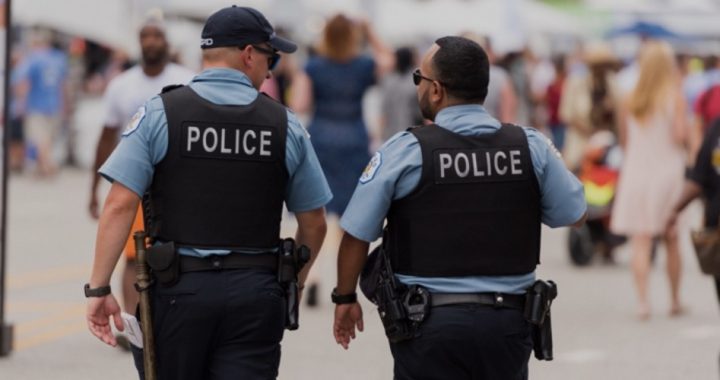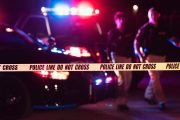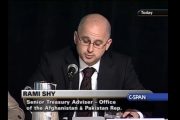
We’re not yet like Mexico, where a criminal gang just disarmed and abducted 11 policemen. But we’re moving in that direction — if a recent Chicago incident in which a crowd intimidated cops into not arresting a suspect is any indication.
As the Chicago Tribune wrote, relating the events of that day, March 17, in the primarily black West Garfield Park section:
Police said two officers observed a drug transaction involving a man inside a vehicle around 2:10 p.m. and tried to arrest the suspect at the scene. During the arrest, a bundle of suspected drugs wound up underneath a police vehicle, authorities said.
As one officer worked to control a gathering crowd and pursue another man who fled with the drug bundle, his partner was surrounded by a group of people, said police spokesman Anthony Guglielmi.
The group “implied that they had weapons” and threatened the lone officer, though no one in the group displayed a weapon, Guglielmi said. For his personal safety, the officer backed away, and someone in the group grabbed the suspect and fled, Guglielmi said.
“Out of an abundance of caution, he backs away from the arrestee. An individual comes and grabs the arrestee and another individual comes and grabs the narcotics,” he said.
Guglielmi said the officer’s statement didn’t indicate how many people were in the group but did confirm a gunshot was fired a short distance away from the arrest, possibly as a distraction or intimidation tactic.
One sign of a nation not of law but of (lawless) men — of a dysfunctional state — is police intimidated by the criminally inclined, as opposed to the reverse. This is also called “the inmates running the asylum.”
We saw this in 1980s Colombia, where drug cartels would intimidate authorities and kill even cabinet ministers and supreme-court justices who opposed them. We see it in Mexico today, where drug lords also wield outsized power. Will we see it in our nation, too, organized gangs brazen enough to threaten and try to assassinate police?
Too late — it has already happened. Authorities in Long Island, New York, have warned that vicious Central American gang MS-13 has issued serious threats to attack and “hit” local and NYPD police officers and, to that end, has even conducted reconnaissance on their homes.
This puts in perspective a remarkably silly Observer (a site that fired me for being politically incorrect) article by one Chris Roberts entitled “Crowd Briefly Frees Man From Chicago Police, Cops React as If the World Is Ending.”
Guess what, Chris? Such lawlessness indicates that our world is ending — and the Third World is taking its place.
Roberts seems to justify the Chicago crowd’s reaction by claiming that inner-city blacks have good reason to distrust and fear the police, given the shooting of black suspects such as 17-year-old Laquan McDonald. This is misguided.
First, note that more white than black suspects are shot by police every year; moreover, cops are even more likely to shoot whites relative to the races’ homicide rates and the rates at which they feloniously shoot police. A study also showed that law officers are more willing to shoot whites.
There are some tragic shootings of innocent whites, too, such as Somali-immigrant cop Mohamed Noor’s 2017 killing of an Australian woman in Minnesota. But should white crowds now prevent officers from arresting white criminals “in response”? Would anyone justify such?
Even more significantly, however, we wouldn’t even be talking about the “West Garfield incident” if locals truly believed that the police regularly could and do shoot innocent black people with impunity — a “crowd” wouldn’t have formed in the first place. The problem wasn’t fear of police.
Rather, what the incident teaches is that the “street is officially no longer afraid of the Chicago police,” as the Chicago Tribune’s John Kass put it.
It’s the cops who are afraid because if they’d “fired their weapons, news media would have been all over them, metaphorically skinning them alive,” Kass continued. “Politicians would have demanded their heads. Democratic presidential candidates, and the two campaigning for mayor, would have held repeated news conferences.”
Oh, and let’s not forget: Like ex-Ferguson, Missouri, officer Darren Wilson, they might have to go into hiding and their careers might be over.
Despite this, Roberts talks in his article about the need for “community policing” and for cops to not just be about “law and order” but to “collaborate” and “problem-solve.” Yes, everything should be Andy Griffith in Mayberry!
Well, sorry, but this ain’t Mayberry — or Hollywood. The big-city mean streets are tough places with rough men who deal in violence, and violence is all they understand. Hence the need for fear of the police.
Oh, I know, that sounds not just passé but primitive. But good psychology, a rare but real thing I’ll cite here since common sense is so uncommon, says otherwise.
Famed psychologist Erik Erikson explained via his “Stages of Psychosocial Development” that people pass through certain moral-growth phases, and when they’re in a certain early stage, they only grasp something’s wrongness if they get punished for it. In other words, such people don’t act rightly for the highest reason — love for the good — but because they fear consequences.
While most in this primitive moral stage are children, some do reach adulthood without ever ascending from it. Needless to say, these overgrown child-savages are heavily represented in the ranks of organized crime and other assorted ruffians.
The lesson is that without fear of the police and criminal-justice system, these moral primitives will run wild. Thus, it’s fear of the authorities that can prevent
• the old lady from being beaten and raped.
• lowlifes from making it impossible for poor black and Hispanic kids to learn in school and better themselves.
• criminals from preying on the locals (and black and Hispanic criminals generally target black and Hispanic victims) and driving business, and hence opportunities, from their neighborhoods.
• gangsters from initiating children into lives of crime and drugs.
• the general murder and mayhem that plagues black communities.
But since not the thugs but the authorities are afraid, cops are now sometimes “de-policing,” which is when they refrain from confronting criminals. Over the long term, of course, this only guarantees more of the above.
Two suspects associated with the West Garfield incident were eventually arrested and charged. But it’s not just that the precedent has been set; it has been reinforced. “And what comes next?” asks Kass. “Who can say? But others will push the envelope, and others will push back, and it ends badly,” he answers.
But before it ends, you have mayhem, no-go zones, demoralized police who become cynical and corrupt and start taking bribes, and societal dissolution. You’ll also still have prissy keyboard-warrior op-ed writers, but they may want to remember that when it gets bad enough, the thugs start killing journalists, too.
Photo: 400tmax/iStock Unreleased/Getty Images



